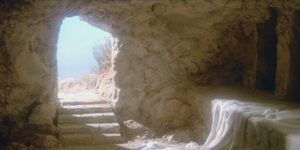
Acts 9:1-24
Over the next few weeks we are going to be looking at the life of the Apostle Paul. The man Saul, changes his name to Paul in to have a name that would not hinder his ministry to the Gentiles.
Saul, didn’t grow up as the great missionary, apostle and writer of almost a third of the New Testament. Saul was the exact opposite, but one day, God reached down and touched his life.
Born a Roman citizen to Jewish parents in 6 A.D. in the town of Tarsus, he was sent by his parents to Jerusalem to study the Torah under Gamaliel, one of the most prominent Jewish scholars of his time. Saul was so dedicated that at a relatively early age he was admitted to the Sanhedrin, which was the ruling group of Jewish leaders.
Saul was zealous and ambitious, probably in his twenties we read in Acts chapter 7, that when Stephen, the first Christian Martyr was stoned to death, a young man by the name of Saul, stood by and approved of his death.
Saul’s ambition drove him to persecute Christians, and he decided to go to Damascus to round up followers of the “Way”. As Saul gets close to Damascus, he is blinded by a light from the sky. This light is so powerful that it knocks him to the ground. And as he is lying there, a voice from heaven speaks to him. “Saul, Saul, why are you persecuting me?” Saul had an immediate understanding, but he needed clarification, and the voice responds, “I am Jesus, whom you are persecuting.” Can you imagine the fear, guilt and the shame as Saul realized that Jesus was risen, and that he was the son of God? It all made sense, he must have been in fear that surely Jesus would kill him now, but Jesus graciously doesn’t leave him there as he immediately continues, “rise up – go to the city and you will be told what to do”.
Jesus takes attacks on the church very personally. When we hurt a fellow Christian, someone who is part of the body of Christ, Jesus takes it very personally. Jesus feels the pain, when his body, the church is slandered, persecuted or ill-treated. Never think it is a small matter to ill-treat another believer, whether it is in business or gossip, it is always a very serious matter.
Saul encountered the risen Christ and it transformed him. Saul was blinded, so bright was the encounter with Jesus that he could not see. I believe that Saul didn’t just see a bright light, but he actually saw the risen Christ, what he saw was Jesus in his current glorified being. Jesus, the exact representation of the Father, is so glorious and so powerful that he is brighter than any sun, or any light we could imagine (1 John 1:5).
Saul later writing in 1 Corinthians 15 about the resurrected Christ, was speaking from experience. He was an eyewitness to the fact that Jesus rose from the dead in a resurrected glorious body.
Saul is led into Damascus, where he refuses to eat or drink, he is blind and trying to process all that just happened. He goes through this mourning period of 3 days. And just like Jonah who was in the fish for 3 days, Saul was being reborn, he was being born of the Spirit, being made new so that God could use him for His Glory.
In verse 10 we are introduced to Ananias, we know little about him, but we are told he was a disciple, a follower of Jesus. A disciple is a follower of Jesus who makes other followers of Jesus.
A disciple is an active follower, not just a passive student.
Ananias was looking for people to win to Christ and to disciple. But I doubt he ever expected to encounter someone like Saul. Saul was praying, and his prayers were being answered as God directed Ananias.
Don’t ever think prayer is not the most valuable thing you can do with your time.
Ananias, knew exactly who Saul was and he responds with some hesitation, But the Lord said to him, “Go, for he is a chosen instrument of mine to carry my name before the Gentiles and kings and the children of Israel. 16 For I will show him how much he must suffer for the sake of my name.” Acts 9:15-16.
God chose Saul. Whether you agree with the doctrine of election or not, the apostle Paul in his later writings, made it abundantly clear that he was chosen by God and not the other way around.
Saul was called to be a suffering servant, Jesus made it very clear that Saul was going to be persecuted for his faith. But this is nothing new and a clear expectation of all who would follow Jesus as Lord (John 15:18-20).
As Ananias prays for Saul, something like scales fall from his eyes, these were a physical manifestation of the healing that took place, but the miracle of his spiritual eyesight was far more important. As Ananias prayed for him, Saul’s spiritual blindness was lifted, and he was able to see the truth that Jesus is the Son of God.
In verse 20 we have the evidence of Saul’s conversion, as he immediately began to tell others about Jesus. He went into the synagogues and declared boldly that Jesus was the Son of God. The priests had obviously heard about what had happened on the road, but now they were seeing the evidence of a life transformed by Jesus.
And the people ask the question, “Is this not the man?” When you encounter Jesus, those around you should ask the same question. You may not have been a terrible person in the eyes of those around you, but the change in your life must be evident to everyone. Your priorities change, when it comes to how you spend your time and your money, people will notice your commitment to the things of the Lord.
Have you had that life changing encounter with Jesus, where he changed your priorities and your goals in life?
Saul had priorities and goals, being a driven man, he was motivated to eradicate Christianity. But when he encountered Jesus, all that changed, and he was never the same again.





